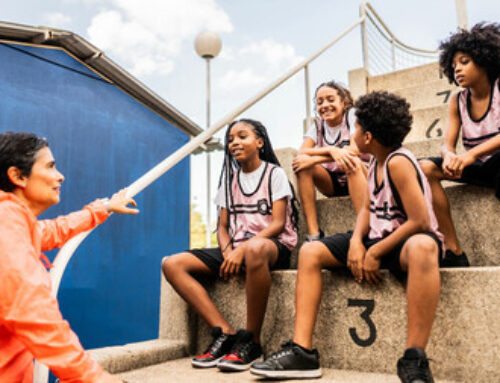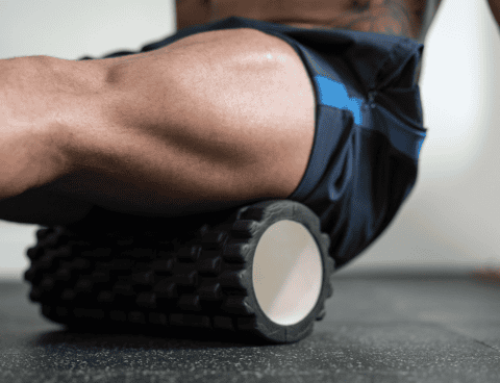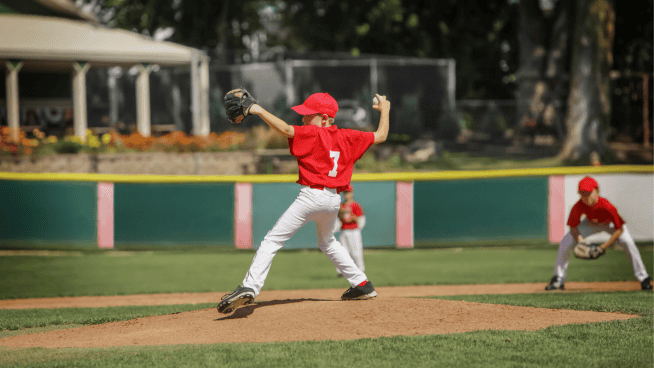How To Make Your Child’s Summer More Productive For Their Season
Our kids face an even tougher task this summer after a year of layoffs, cancellations, season delays, and poor practice regimens.
Preparation is key for a developing athlete, yet this year has made this impossible for young athletes across the entire country.
Seasons have been either postponed, canceled, or shortened. Practices have been scaled back(due to available players and the use of masks), adjusted, or used in such a way that has coaches missing key pieces that normally would be present in their training only to help get them ready as quickly as possible.
We’ve all taken sacrifices when it comes to our children’s extracurricular activities this year. Still, now that things have started to settle down, we enter a key piece of their life that can either propel them into peak performance or set them back further.
It’s no common surprise when I tell you that more than 19 percent of our country’s youth are obese. COVID has a large part to blame for the increase this year, but as parents, there are a few key things you can do this summer to make sure your athlete enters the fall season in the best shape possible.
Make It Mutual
As your kids get introduced to weight training, it is vitally important to put them into a situation where they enjoy it!
There is nothing worse than having to “force” your kids to work out. The biggest thing you can do is have them team up with other athletes or even yourself to work out!
Whether you think so or not, your kids envy you. They want to be like you, look like you, and train like you! An even better option than getting them with other kids would be to have them train with you. Have “dad time” set away for you and your child to get training. Not only will it help them enjoy it more, but it will allow you to see for yourself where their strengths/weaknesses may be so you can seek outside help or relay this to coaches to get them down the right path quicker.
Many parents go through years of their kid’s development just “listening” to what others say about their kid’s performance, but if you were to witness their work ethic and needs close up, then you can better help them progress.
So don’t be afraid to set aside gym time, have them tag along, or get them teamed up with a few friends weekly to get to the gym. Creating a healthy habit they enjoy is of utmost importance.
Not only can it help them learn to love working out, but it can also force you to get more active and be healthier! A simple way to add some excitement to it would be to reward them for reaching maybe a certain number of monthly workouts or a benchmark for their training.
Find a Good Coach
The fitness industry has become overwhelmingly filtered in the last year. From newfound online trainers to influencers who know how to market but couldn’t decipher the biceps from the triceps, we are tempted with thousands of options for trainers.
The key is finding the right one for your child’s development. A few things to consider when searching:
- How long have they been training?
- Who have they helped in the past, and what do they say about them?
- Do they develop a good rapport with their clients?
- Do they have quality certification and experience?
One big thing you need to remember is the simple fact that the coach is the dictator of your child’s future in weight training. All it takes is one bad experience at a young age to get turned away from the enjoyment you get from performance training.
As a coach, the focus is to make every young athlete enjoy coming to the gym. This means deviating from the standard textbook routines sometimes, but in the long run, enjoyment leads to adherence which creates a lifestyle for these young individuals.
If your son or daughter dreads going to the gym, it could be a sign that the coach or trainer is not making the session enjoyable for them, which is a priority. The work needs to get done, but it doesn’t mean you can’t crack a smile, choose some fun games and finishers to allow them to laugh, compete and showcase their abilities.
Hygiene
Over the years, one of the biggest performance crushers I see with my athletes stems from their own self-care.
For starters, sleep is by far the most crucial component to a developing younger’s performance. What’s more, sleep deprivation is known to run counter to performance and strength goals for several reasons, including:
- Increased feelings of hunger
- Reduced feelings of satiety
- Reduced energy expenditure
- Decreased motivation to exercise
- Increased cortisol levels
- Reduced fat oxidation
- Disrupted carbohydrate metabolism
- Increased storage of belly fat
- Impaired athletic performance (which reduces calorie burning)
A lack of sleep will impair their ability to recover and grow from the work they are putting in the gym. I’ve witnessed this firsthand, seeing teenagers struggling to perform because they were out late the night before playing poker with their buddies until 3 am.
This is not me saying that aspiring young athletes should never have fun, but consistently failing to get 7-9 hours of sleep will not only hinder their progress but their ability to train in general.
Your kids may have a hard enough time realizing how vital fitness and training is during the summer, so trying to enforce it when they are sleeping in until noon and exhausted daily is a recipe for disaster.
In addition to sleep, nutrition is right up there in importance as well. Young athletes never seem to have issues getting enough food, but the quality needs to be focused on.
Most of the parents reading this article don’t need a science lesson on why fruits and veggies beat cookies and chips, but what you may need to be reminded of is that teaching your athletes the importance of performance nutrition is key.
Never skip meals. Yes, this means you need to get up in time for breakfast, you can’t skip lunch, and dinner actually needs to be prepared and eaten.
Ditch soft drinks and sugary fruit juices. Stick to milk, 100% juice, and lower-calorie electrolyte drinks(you can see my article here on electrolytes). Personally, I would have my athletes make a massive shake post-training with protein powder, nut butter, milk, and oats. My advice, if you think your kid is skinny and doesn’t eat often, add in a milkshake daily and make it from scratch with better ingredients!
Eat more when you can. Take seconds and thirds when possible if you are trying to gain weight. Oftentimes, young athletes think they eat a lot but need much more to allow their bodies to grow and perform.
Eat more often. Have snacks ready, and be sure to fuel before and after exercise.
Snack Options
- Turkey, ham, roast beef, or chicken breast on 2 slices of whole-grain bread.
- Peanut butter and jelly (use all fruit jelly) on whole wheat bread
- Energy Bars: I like Lara bars or Kind bars.
- Whole wheat crackers (i.e., Multi-grain wheat thins, Kashi Crackers) and top with cheese or peanut butter for added protein
- Beef jerky-dried, in bags – one small bag at a time
- Nuts– ~15 cashews, almonds, peanuts, pistachios yields ~100 calories
- A small cup of cottage cheese– can add fresh fruit and/or sunflower seeds
- Fresh fruit, with a source of protein and/or fat- nuts, cheese, peanut butter
Summer is a tough time for kids to develop routines. Their training schedules become filtered with vacations, parties, and get-togethers with friends.If they stick to these three principles, you can destress knowing they will enter the fall with a bit more preparation than years past.
Ultimately, the development starts with you as a parent. You are their biggest role model and can be the setting example of their dedication to training. If there was one thing I am very proud of my parents for, they kept me on track during the summer with my training and workouts.
An athlete’s younger training years can have a huge impact on their development into college and beyond. Starting to encourage healthy habits in their offseason can be a great starting point. Fitness is evolving more and more each year, but one thing can be certain, and that is the simple fact that young athletes learn best by getting disciplined about their sport in the offseason.
Read more:
RECOMMENDED FOR YOU
MOST POPULAR
How To Make Your Child’s Summer More Productive For Their Season
Our kids face an even tougher task this summer after a year of layoffs, cancellations, season delays, and poor practice regimens.
Preparation is key for a developing athlete, yet this year has made this impossible for young athletes across the entire country.
Seasons have been either postponed, canceled, or shortened. Practices have been scaled back(due to available players and the use of masks), adjusted, or used in such a way that has coaches missing key pieces that normally would be present in their training only to help get them ready as quickly as possible.
We’ve all taken sacrifices when it comes to our children’s extracurricular activities this year. Still, now that things have started to settle down, we enter a key piece of their life that can either propel them into peak performance or set them back further.
It’s no common surprise when I tell you that more than 19 percent of our country’s youth are obese. COVID has a large part to blame for the increase this year, but as parents, there are a few key things you can do this summer to make sure your athlete enters the fall season in the best shape possible.
Make It Mutual
As your kids get introduced to weight training, it is vitally important to put them into a situation where they enjoy it!
There is nothing worse than having to “force” your kids to work out. The biggest thing you can do is have them team up with other athletes or even yourself to work out!
Whether you think so or not, your kids envy you. They want to be like you, look like you, and train like you! An even better option than getting them with other kids would be to have them train with you. Have “dad time” set away for you and your child to get training. Not only will it help them enjoy it more, but it will allow you to see for yourself where their strengths/weaknesses may be so you can seek outside help or relay this to coaches to get them down the right path quicker.
Many parents go through years of their kid’s development just “listening” to what others say about their kid’s performance, but if you were to witness their work ethic and needs close up, then you can better help them progress.
So don’t be afraid to set aside gym time, have them tag along, or get them teamed up with a few friends weekly to get to the gym. Creating a healthy habit they enjoy is of utmost importance.
Not only can it help them learn to love working out, but it can also force you to get more active and be healthier! A simple way to add some excitement to it would be to reward them for reaching maybe a certain number of monthly workouts or a benchmark for their training.
Find a Good Coach
The fitness industry has become overwhelmingly filtered in the last year. From newfound online trainers to influencers who know how to market but couldn’t decipher the biceps from the triceps, we are tempted with thousands of options for trainers.
The key is finding the right one for your child’s development. A few things to consider when searching:
- How long have they been training?
- Who have they helped in the past, and what do they say about them?
- Do they develop a good rapport with their clients?
- Do they have quality certification and experience?
One big thing you need to remember is the simple fact that the coach is the dictator of your child’s future in weight training. All it takes is one bad experience at a young age to get turned away from the enjoyment you get from performance training.
As a coach, the focus is to make every young athlete enjoy coming to the gym. This means deviating from the standard textbook routines sometimes, but in the long run, enjoyment leads to adherence which creates a lifestyle for these young individuals.
If your son or daughter dreads going to the gym, it could be a sign that the coach or trainer is not making the session enjoyable for them, which is a priority. The work needs to get done, but it doesn’t mean you can’t crack a smile, choose some fun games and finishers to allow them to laugh, compete and showcase their abilities.
Hygiene
Over the years, one of the biggest performance crushers I see with my athletes stems from their own self-care.
For starters, sleep is by far the most crucial component to a developing younger’s performance. What’s more, sleep deprivation is known to run counter to performance and strength goals for several reasons, including:
- Increased feelings of hunger
- Reduced feelings of satiety
- Reduced energy expenditure
- Decreased motivation to exercise
- Increased cortisol levels
- Reduced fat oxidation
- Disrupted carbohydrate metabolism
- Increased storage of belly fat
- Impaired athletic performance (which reduces calorie burning)
A lack of sleep will impair their ability to recover and grow from the work they are putting in the gym. I’ve witnessed this firsthand, seeing teenagers struggling to perform because they were out late the night before playing poker with their buddies until 3 am.
This is not me saying that aspiring young athletes should never have fun, but consistently failing to get 7-9 hours of sleep will not only hinder their progress but their ability to train in general.
Your kids may have a hard enough time realizing how vital fitness and training is during the summer, so trying to enforce it when they are sleeping in until noon and exhausted daily is a recipe for disaster.
In addition to sleep, nutrition is right up there in importance as well. Young athletes never seem to have issues getting enough food, but the quality needs to be focused on.
Most of the parents reading this article don’t need a science lesson on why fruits and veggies beat cookies and chips, but what you may need to be reminded of is that teaching your athletes the importance of performance nutrition is key.
Never skip meals. Yes, this means you need to get up in time for breakfast, you can’t skip lunch, and dinner actually needs to be prepared and eaten.
Ditch soft drinks and sugary fruit juices. Stick to milk, 100% juice, and lower-calorie electrolyte drinks(you can see my article here on electrolytes). Personally, I would have my athletes make a massive shake post-training with protein powder, nut butter, milk, and oats. My advice, if you think your kid is skinny and doesn’t eat often, add in a milkshake daily and make it from scratch with better ingredients!
Eat more when you can. Take seconds and thirds when possible if you are trying to gain weight. Oftentimes, young athletes think they eat a lot but need much more to allow their bodies to grow and perform.
Eat more often. Have snacks ready, and be sure to fuel before and after exercise.
Snack Options
- Turkey, ham, roast beef, or chicken breast on 2 slices of whole-grain bread.
- Peanut butter and jelly (use all fruit jelly) on whole wheat bread
- Energy Bars: I like Lara bars or Kind bars.
- Whole wheat crackers (i.e., Multi-grain wheat thins, Kashi Crackers) and top with cheese or peanut butter for added protein
- Beef jerky-dried, in bags – one small bag at a time
- Nuts– ~15 cashews, almonds, peanuts, pistachios yields ~100 calories
- A small cup of cottage cheese– can add fresh fruit and/or sunflower seeds
- Fresh fruit, with a source of protein and/or fat- nuts, cheese, peanut butter
Summer is a tough time for kids to develop routines. Their training schedules become filtered with vacations, parties, and get-togethers with friends.If they stick to these three principles, you can destress knowing they will enter the fall with a bit more preparation than years past.
Ultimately, the development starts with you as a parent. You are their biggest role model and can be the setting example of their dedication to training. If there was one thing I am very proud of my parents for, they kept me on track during the summer with my training and workouts.
An athlete’s younger training years can have a huge impact on their development into college and beyond. Starting to encourage healthy habits in their offseason can be a great starting point. Fitness is evolving more and more each year, but one thing can be certain, and that is the simple fact that young athletes learn best by getting disciplined about their sport in the offseason.
Read more:










